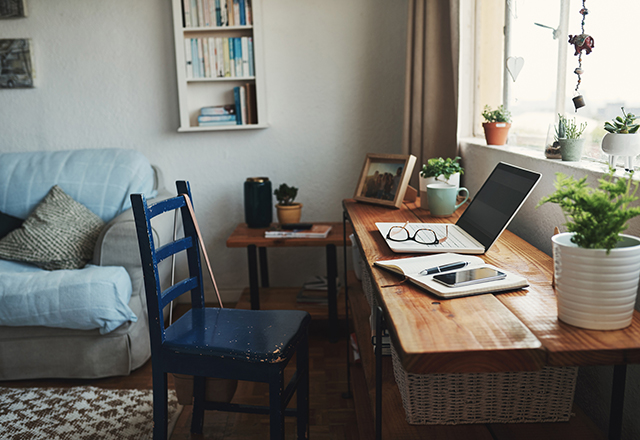Since mid-March, like many of us, I have been working from home (WFH). For the first couple of weeks, I was excited about the newfound flexibility of WFH and was extremely productive. However, my productivity and contentment have varied dramatically. Though labs have now partially reopened with limited capacity, those who do not have hands-on laboratory work to do at the moment (for example, people doing bioinformatics work, and those waiting for mice to age or for a new protocol to be approved) are encouraged to remain at home. I happen to be one of those people for the time being, so my WFH journey will continue indefinitely. Therefore, after much reflection as to what’s working and what’s not, here are some of my best recommendations for working from home:
Stick to a routine.
Think about how many hours per day you would be doing work if you were still going to the lab. Just because your home is now your workplace does not mean you need to be working 24/7! Try waking up at the same time each day on weekdays, and “clocking in” and “clocking out” at fairly consistent times. After you’re done working, try to relax and not think about work for the rest of the night, even though you are in the same location.
Simulate an authentic work environment.
If you stay in your pajamas all day and try to lie in bed to do work, you will likely just fall asleep (at least I will). Try to set up a desk area designated for work, and make that as much of a distraction-free environment as possible. Shower and get dressed as if you are really going to work. Set deadlines for yourself, even if you don’t have any true deadlines. Simulating a work schedule and environment will help keep you in a productive mindset!
Keep notes.
Even though you may not be doing wet-lab experiments, it is still beneficial to take notes on your daily tasks. Since, in these times, the days tend to blend together, it can make life a lot easier to be able to refer back to your notes to recall what you’ve been working on! I try to take notes during each Zoom call I have so I can remember what we discussed, and at the end of the meeting, I always make sure we go over next steps so that I have clearly outlined tasks and goals I can write down for the coming week.
Set up regular Zoom calls with your PI and co-workers.
To help maintain a sense of normalcy and keep your progress moving, have regular Zoom calls with your principal investigator (PI) and your labmates. My lab group has a large meeting every other week, and my PI has one-on-one meetings with each of her trainees regularly. The opportunity to see everyone’s face, discuss our lab progress and check in on one another’s mental health makes meetings a highlight of my week.
Hone a new skill.
While there is no need to overwork yourself just because you are now at home, it is a great time to learn a new skill that you have not had time to pursue. If some of your projects have fallen by the wayside due to quarantine restrictions, this is the perfect time to explore new things. For example, bioinformatics and coding are advantageous skills to have — see my post on learning to code for inspiration!
Take care of your body.
The more you take care of yourself, the more efficient you will be while working. While it’s good to support local businesses and order carryout, this is also a great time to experiment with new healthy recipes. One of my favorite websites is Budget Bytes, where you can find countless delicious recipes that work on a grad student budget. Exercising and getting enough sleep are also critical. I have found that when I’m in a slump, taking a break from work to do a workout rejuvenates me.
Be gentle to yourself.
Overall, don’t be so hard on yourself. These are unprecedented, unimaginable times — don’t feel like you need to be even more productive than usual because you are at home. People have multiple roles to fill at home these days, and many other concerns outside of their work. Give yourself some slack and take the time you need for your physical and mental well-being.
Related content
- The Student Scientists Behind the (Future) Coronavirus Cure
- Ways in Which We Can Help Throughout the Coronavirus Pandemic
- Isolation Baking: A Guide for Stress Bakers
Want to read more from the Johns Hopkins School of Medicine? Subscribe to the Biomedical Odyssey blog and receive new posts directly in your inbox.

Pingback: Fitness in a COVID Surge – Biomedical Odyssey
Comments are closed.